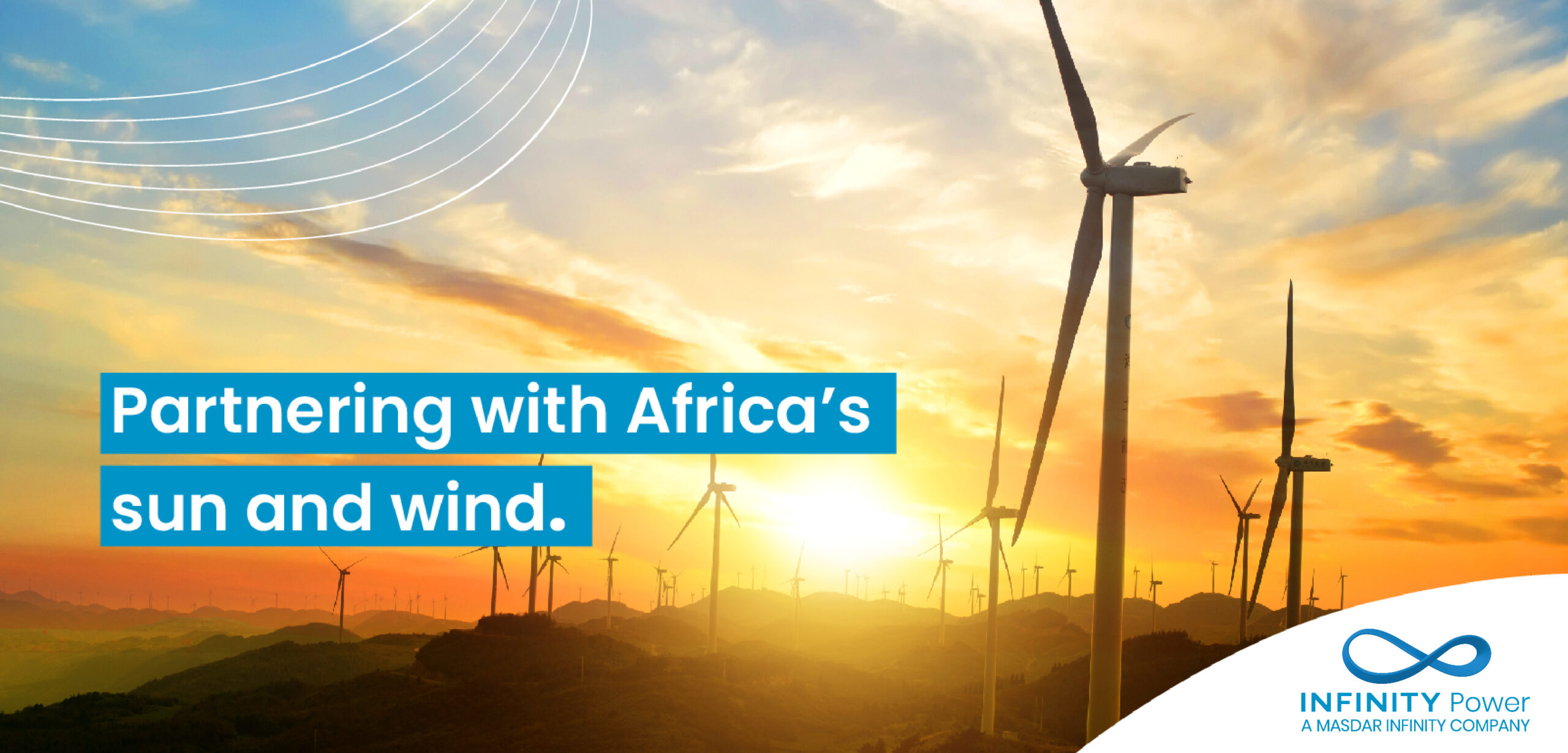- Acwa, Masdar, Socar to develop 500 MW of renewable energy projects in Azerbaijan. (Renewables)
- KSA’s sovereign fund may buy stake in Chinese EV maker by end of year. (Investment Watch)
- UAE’s Dubai Multi Commodities Centre publishes special edition report on energy. (Macro Picture)
- Tunisia implements coastal zone management protocol + talks reducing climate change impact with World Bank. (Also on Our Radar)
- BlackRock sinks USD 550 mn in Occidental’s DAC plant. (Around the World)
- ADIB takes its first green sukuk to market. (What We’re Tracking Today)
- Petrostates are about to blow the world’s carbon budget. (What We’re Tracking Today)

Thursday, 9 November 2023
Acwa + Masdar + Socar team up on renewables in Azerbaijan
TL;DR
WHAT WE’RE TRACKING TODAY
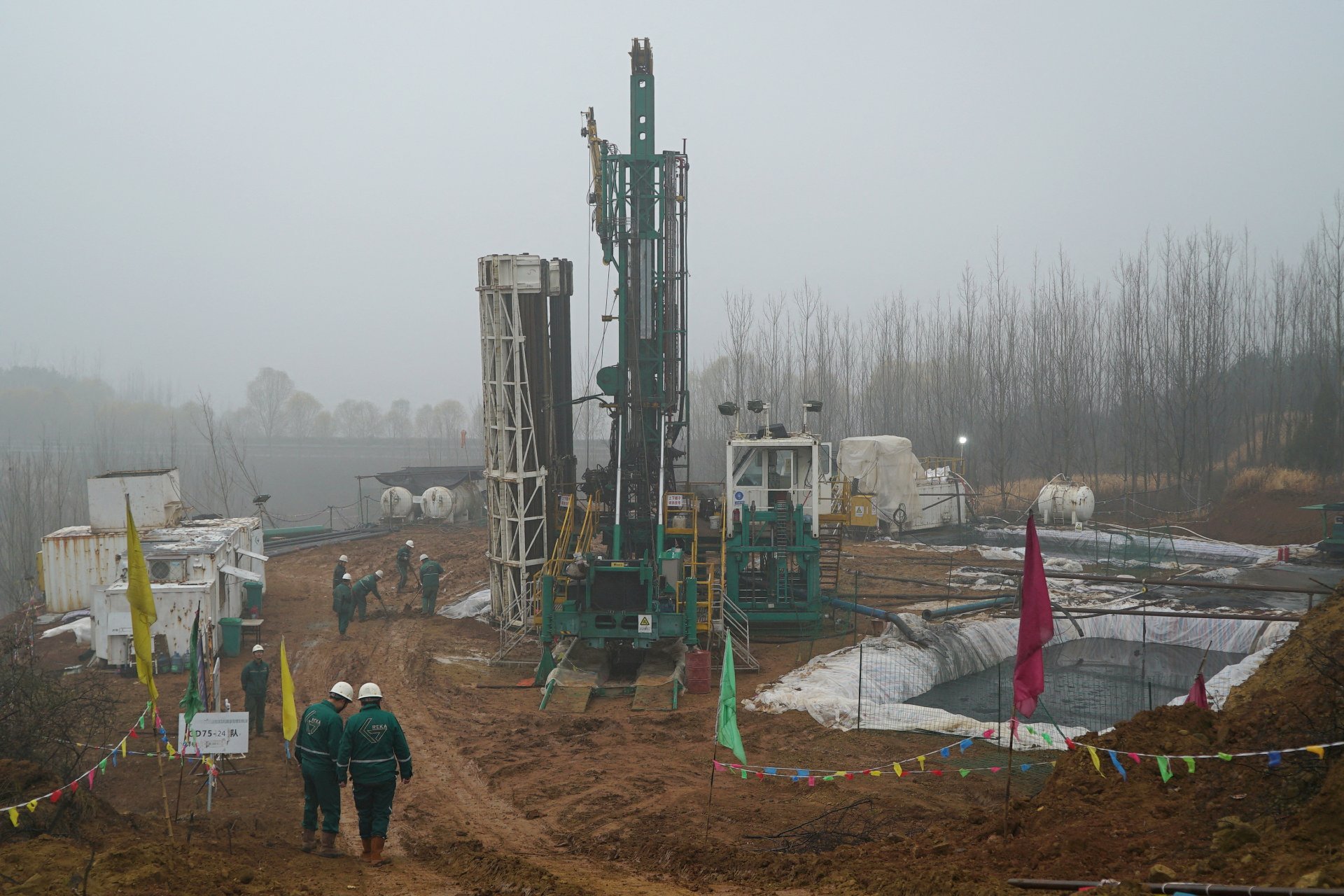
Good morning, ladies and gentlemen. We bring you another brisk but meaty issue this morning as we slide towards the weekend in our neck of the woods.
THE BIG CLIMATE STORY- Saudi's Acwa Power has signed an MoU with the UAE's Masdar and State Oil Company of Azerbaijan Republic (Socar) to develop 500 MW of renewable energy projects in Azerbaijan.
OVER IN COPLAND- China (kind of) reveals methane emission reduction goals ahead of COP: China — the world’s largest producer of methane — has pledged to better track and reduce harmful emissions from the potent global warming gas, setting the tone for what’s to come at COP, the Financial Times reported, citing a government document. The statement failed to specify definitive targets or timelines for the planned emissions cuts but said it will cover all sectors from energy to agriculture and waste through to 2030. The move was “an opening play, rather than a final offer,” a climate policy diplomat told FT, adding that it lays the groundwork for further discussions ahead of the UN climate summit launching later this month.
China was stubborn at first: China is one of few countries that refused to join the global methane pact signed by more than 150 countries two years ago at the Glasgow climate summit.
WATCH THIS SPACE #1- ADIB takes its first green sukuk to market: Abu Dhabi Islamic Bank (ADIB) started selling its five-year benchmark-sized USD-denominated first green sukuk at 145 basis points over US Treasuries, Reuters reports, citing an arranging bank document it has seen. The lender is looking to raise USD 500 mn from the debt sale. The bank announced on Tuesday that the issuing should follow investor meetings taking place.
We have an investment cost for the recently announced 1.1 GW solar project in KSA: The consortium selected to develop the 1.1 GW Al Henakiyah solar PV project under a build-own-operate agreement is investing USD 1 bn to build the plant, according to a company statement. The consortium is made up of UAE’s Masdar, France’s EDF Renewables, and Saudi Arabia’s Nesma Company, who together signed a 25-year power purchase agreement with the Saudi Power Procurement Company to sell solar energy at a price of USD 1.68 per KWh.
WATCH THIS SPACE #2- Egypt’s GASCO is ready to jump on the green hydrogen train: The Egyptian Natural Gas Company (GASCO) has approved an amendment in the company’s bylaws to allow the firm to start engaging in hydrogen and carbon capture-related projects, Egypt’s Oil Ministry said in a statement. The amendment expands GASCO’s activities to include “establishing, manufacturing, operating, maintaining, managing, and owning” projects that are necessary for the “production, storage, transportation, distribution, selling, purchasing, exporting, and importing hydrogen.” It also allows the company to engage in “separating and transporting carbon dioxide.”
REMEMBER- Natural gas companies will play an important role in building green hydrogen infrastructure as researchers are working on technologies to repurpose gas pipelines to transport hydrogen instead. Tunisia, Algeria, and Morocco are currently exploring potential agreements to eventually transform existing natural gas pipelines into (green) hydrogen pipelines.
WATCH THIS SPACE #3- Egypt takes its EV production plans digital: Egypt’s government launched an electronic platform for the Egyptian Automotive Industry Development Program (AIDP), which encourages EV localization with the aim of enhancing the country’s existing assembly and manufacturing capabilities, and of encouraging new investment into the sector, according to a cabinet statement. The government finalized policy amendments to allow financial incentives to replace, convert, and finance the purchase of vehicles powered by clean energy. It's also ramping up a list of incentives for the production of EVs to attract manufacturers and reduce the use of fossil fuel-powered cars to allow for more EVs.
THE DANGER ZONE #1- Petrostates’ plans for fossil fuel expansion will “blow the planet’s carbon budget twice over,” the Guardian reports, citing the UN’s Production Gap report (pdf). The energy plans of the fossil fuel producers contradicted their climate pledges, and would lead to de facto increase in coal production by 460%, gas production by 83%, and oil production by 29% more above what is allowed to keep temperatures below 1.5°C. The largest carbon emitters from planned fossil fuel production are India (coal), Saudi Arabia (oil) and Russia (coal, oil, and gas), while the UAE, US, and Canada are also planning to be major oil producers, the news outlet said.
THE DANGER ZONE #2- The hottest year on record? 2023 is “virtually certain” to be the warmest in 125k years, Reuters reports, the EU's Copernicus Climate Change Service (C3S). October’s 2019 record was broken by 0.4°C, after September 2023 also broke the temperature records by a large margin. The average surface air temperature globally in October was 1.7°C warmer than pre-industrial levels, the report adds. The heat results from greenhouse gas emissions from human activity along with weather patterns caused by El Nino. “Most El Nino years are now record-breakers because the extra global warmth of El Nino adds to the steady ramp of human-caused warming,” said University of Pennsylvania climate scientist Michael Mann.
THE DANGER ZONE #3- Tunisia’s agriculture sector will take a big hit as drought worsens: Agricultural production in Tunisia is predicted to drop by 29.1% to 33.1% by 2050 due to increased water shortages brought about by climate change, according to the World Bank’s Fall 2023 Economic Monitor of Tunisia (pdf). These losses would translate into a reduction in GDP by 4.1% to 4.6% by 2050, or 2% to 2.7% (USD 900 mn to USD 1.3 bn) by 2030. If today’s trajectory continues, the available water per person per year could fall by 66%, leaving a 28% supply gap by 2050. The impacts are already being felt and are shrinking the country’s growth, the report concludes.
Tunisia’s prized olive yields will be impacted the most: Tunisia’s valued olive yields — which accounted for a significant 40% of total agricultural exports in 2019 — could drop by as much as 69% by 2050.
HELP SUPPORT GAZANS-
Want to support relief efforts in Gaza, but don’t know how? We’ve got you. More than a mn people in Gaza have been thrown from their homes and every human being there lacks access to food, water, and fuel amid the most intense bombardment any population has endured this century. The charities we’re listing below are regional organizations working on Gaza relief that we think you can trust if you want to make a donation.
#1- Egyptian Red Crescent Society is one of the nation’s leading providers of humanitarian and emergency medical services. The Egypt Red Crescent accepts donations in EGP online and is on Fawry with the service code 99981. You can also donate to the organization through this Banque du Caire account: 49/403/30 (EGP) or 1065/601/30 (USD — code: BCAIEGCX030).
#2- The Emirates Red Crescent Authority has launched the Tarahum — For Gaza campaign and is accepting donations online via What’s App, SMS, Apple Pay, credit card, or bank transfer to ADIB (AE370500000000020000417).
#3- The King Salman Humanitarian Aid and Relief Center has launched the Sahem campaign accepting donations via their website, mobile apps on Apple Store and Google Play, or bank transfer to Al Rajhi Bank (SA5580000504608018899998).
#4- UNICEF has been on the ground in Gaza since the start of the crisis, providing urgent supplies and aid. You can donate to the agency directly in your local currency using your credit card here.
ALSO- The folks at Talabat are processing donations for a range of Gaza relief appeals by charities including the Egyptian Food Bank, Misr El Kheir and the Emirates Red Crescent Authority’s Tarahum campaign. You can make the donation via the Talabat app using your credit card.
|
***
YOU’RE READING ENTERPRISE CLIMATE, the essential regional publication for senior execs who care about the world’s most important industry. Enterprise Climate covers everything from finance and tech to regulation, products and policy across the Middle East and North Africa. In a nod to the growing geographical ambitions of companies in our corner of the world, we also include an overview of the big trends and data points in nearby countries, including Africa and southern Europe.
Enterprise Climate is published by 5am CLT / 5am Riyadh / 6am UAE Monday through Thursday by Enterprise, the folks who bring you Enterprise Egypt, your essential 6am and 3pm read on business, finance, policy and economy in Egypt and emerging markets.
EXPLORE MORE OF ENTERPRISE ON THE WEB — tap or click here to read EnterpriseAM, EnterprisePM, and The Weekend Edition on our powerful new website packed with reader-friendly features.
Subscribe to Enterprise Climate here or reach out to us on climate@enterprisemea.com with comments, suggestions and story tips.
***
CIRCLE YOUR CALENDAR-
Turkey will host the GCC-Türkiye Economic Forum from Saturday 11 November to Monday, 13 November in Istanbul. The forum aims to bring together key ministers and state officials from the Gulf countries and Turkey to explore areas of potential investments and commercial ties and to establish a network for joint projects in the energy, defense, banking, retail, and transportation sectors. The event is organized by the Gulf Research Center and Turkey’s International Cooperation Platform.
The UAE will host the MENA Solar Conference from Wednesday, 15 November to Saturday, 18 November in Dubai. The event will focus on all things photovoltaic, with a full programme on PV materials and devices, future technologies, PV reliability, and forecasting for performance assessment. The conference will also touch on how developments in system operations, concentrated solar power, and grid integration are necessary for the green transition. This will be the first scientific and technical conference specializing in solar energy systems in the region.
The UAE will host the Aviation and Alternative Fuels conference from Monday, 20 November to Friday, 24 November in Dubai. The event will bring together senior government officials and international organizations to assess progress in the development and deployment of sustainable aviation fuels (SAFs) and lower-carbon aviation fuel (LCAF) measured according to the targets outlined in the 2050 Vision for SAF, agreed upon at the last Aviation and Alternative Fuels conference in 2017.
The UAE will host the Abu Dhabi Finance Week (ADFW) from Monday, 27 November to Thursday, 30 November in Abu Dhabi. The event will gather government officials, banks, financial institutions, and VCs to delve into today’s economic, technological, and sustainability conversations.
Check out our full calendar on the web for a comprehensive listing of upcoming news events, national holidays and news triggers.
RENEWABLES
Acwa, Masdar, Socar to develop 500 MW of renewables in Azerbaijan
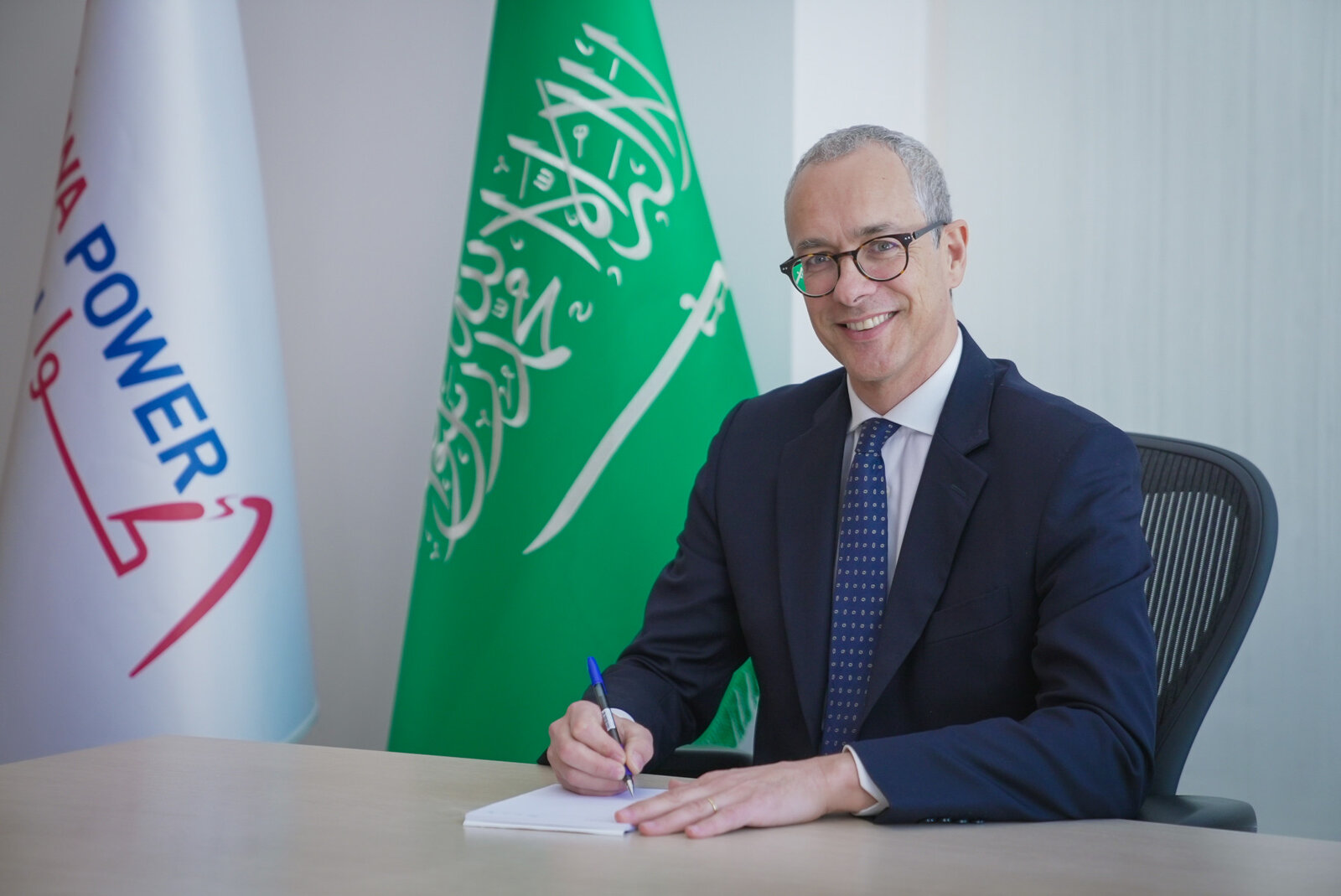
Acwa + Masdar + Socar to partner on renewable energy in Azerbaijan: Saudi's Acwa Power has signed an MoU with the UAE's Masdar and State Oil Company of Azerbaijan Republic (Socar) to develop 500 MW of renewable energy projects in Azerbaijan, according to a statement. The statement did not specify what type of renewable energy the three companies will develop, or whether it will be one or multiple projects. No details were provided on the financials or timeline.
What they said: "This strategic alliance underscores our dedication to harnessing the vast potential of solar and wind energy, furthering our efforts to reduce carbon emissions, and fostering economic growth in our region," Socar Vice President Afgan Isayev said in the statement.
Acwa and Masdar have big plans for Azerbaijan: Acwa Power signed an agreement with Azerbaijan in February that will see the company set up a 1.5 GW offshore wind energy project as part of a plan to build wind farms with a combined capacity of 2.5 GW and develop the country’s first battery storage systems. The company also inked an agreement with the Azerbaijan Renewables Energy Agency to develop a 200 MW onshore wind farm accompanied by battery energy and storage facilities. Masdar also signed an agreement with Socar in January to develop renewables projects with a combined capacity of 4 GW. It also launched operations of its Garadagh Solar Park in Azerbaijan and inked agreements for 1 GW of solar and onshore wind projects in the country.
INVESTMENT WATCH
KSA is eyeing a USD 250 mn investment in Chinese EV maker Human Horizons
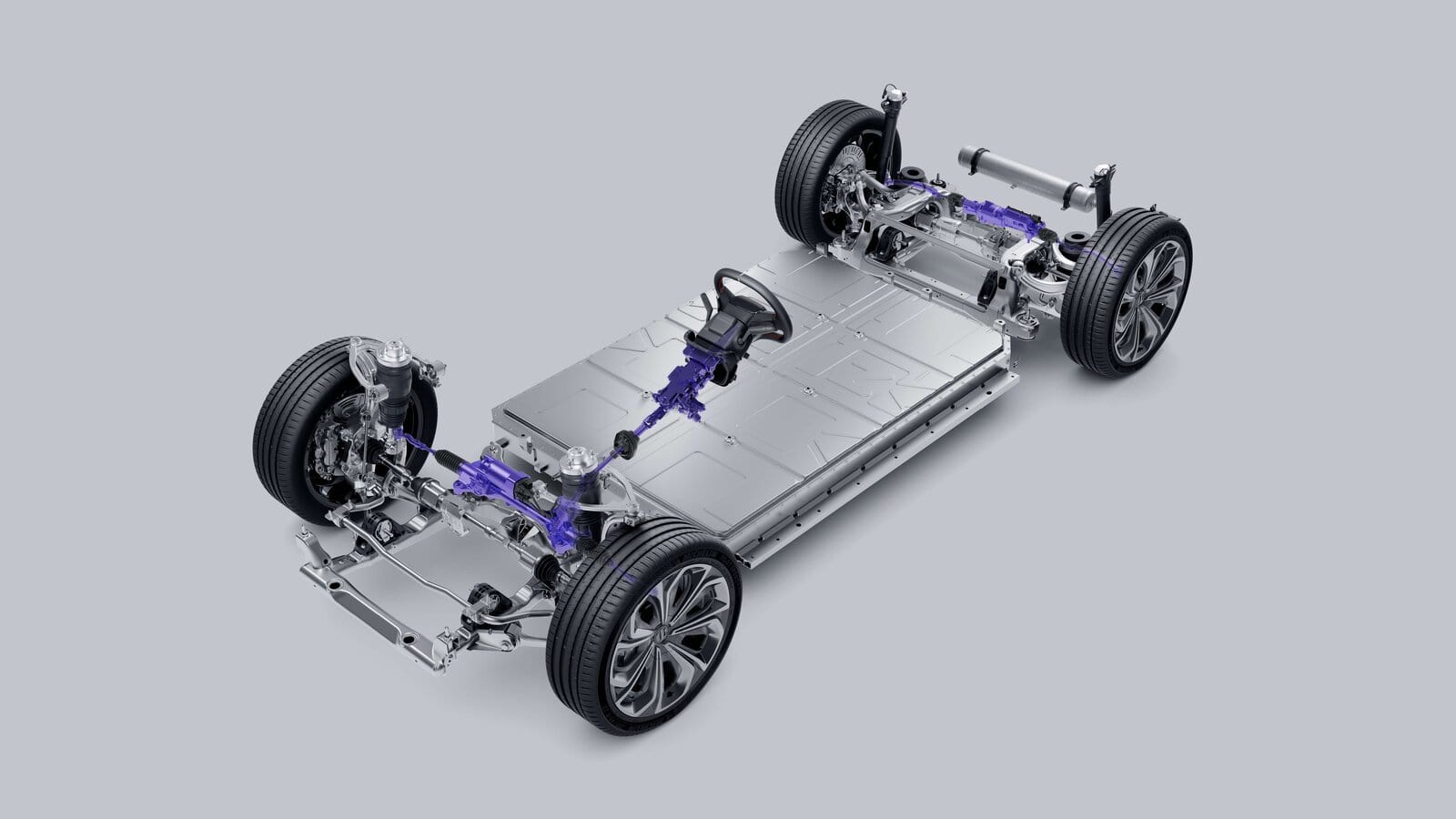
KSA’s sovereign fund may buy stake in Chinese EV maker by end of year: Saudi Arabia’s sovereign wealth fund the Public Investment Fund (PIF) is eyeing a USD 250 mn stake in Chinese electric car manufacturer Human Horizons, anonymous sources familiar with the private discussions told Bloomberg. The agreement may be reached before the end of the year subject to the finalization of the terms, the sources said, adding that PIF may buy into the Shanghai-based firm at a USD 3 bn valuation.
Human Horizons has been on the lookout for private investors: The Chinese EV manufacturer has been considering raising as much as USD 1 bn from private investors to bolster growth, the sources told the news outlet. The company is currently in talks with UBS Group and Morgan Stanley on a potential initial public offering.
KSA already has a USD 5.6 bn EV partnership with Human Horizons: Saudi Arabia’s Investment Ministry signed a USD 5.6 bn agreement with Human Horizons in June to develop, manufacture, and sell electric vehicles. No details regarding the location of the facility or a timeline for the launch of the electric vehicles have been announced yet.
And has recently built a few more partnerships with other EV manufacturers: Last month, PIF and Hyundai Motor Company signed a JV agreement to establish a USD 500 mn highly automated vehicle manufacturing plant in the kingdom. PIF has also established Saudi Arabia’s first national EV brand Ceer in partnership with Foxconn, as well as invested in US-based Lucid Motors. In September, Lucid announced that it opened its first international EV plant in Saudi Arabia’s KAEC with plans to eventually produce up to 155k vehicles per year.
Will the investment in Human Horizons be made through PIF’s newly founded EV investment company? In October, PIF launched a new investment company, Tasaru Mobility Investments, focused on strengthening the local supply chain for electric and autonomous vehicles. The company was set up to establish partnerships with both local and global private sector companies to improve the localization of manufacturing and increase the adoption of the latest technologies.
About Human Horizons: Human Horizons is a Chinese developer of autonomous driving technologies and manufacturer of electric cars under the HiPhi brand, which was the first domestic product to make top sales for luxury electric cars in China. The company has centers in the US, Germany, and Japan. It is unclear whether the new Saudi partnership will include the manufacture of the HiPhi EV.
MACRO PICTURE
Dubai’s freezone publishes special edition trade report on energy, laying out state of green transition in the region
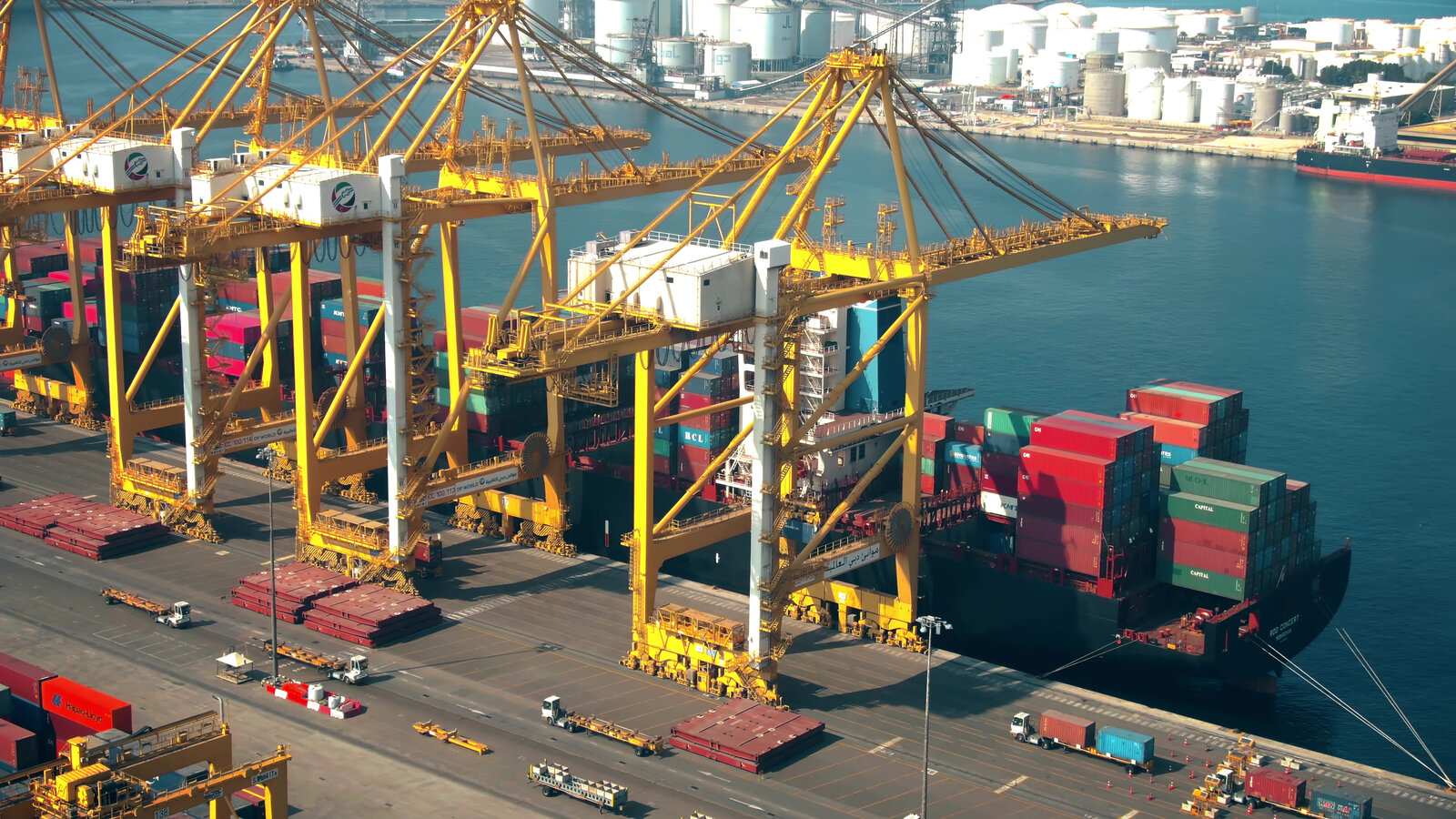
UAE’s Dubai Multi Commodities Centre publishes special edition report on energy: The UAE's largest freetrade zone — the Dubai Multi Commodities Centre (DMCC) — has released a special edition of its Future of Trade report (pdf), which looks at the growing opportunities and challenges across the region’s energy supply chain, including the state of the energy transition, with a focus on the UAE. The report breaks down how those developments could impact trade and global competitiveness amid uncertainty and multiple potential pathways for the direction the transition can take. The analysis was carried out by Energy Intelligence.
The likelihood of reaching global net-zero by 2040 is 4%: Energy Intelligence charted four main scenarios for the global energy transition and their likelihood of occurring given today’s trajectory. The most likely scenario — with a 47% probability of occurrence — is an “accelerated” momentum towards transition, where policy makers and investors are offering mixed but growing support for faster action. The “boost” scenario presents a faster transition path but a lower likelihood of 30%, as it would require a self-reinforcing cycle of stronger policy incentives and corporate responses to boost technological progress and reduce costs. The most ambitious scenario for net-zero currently seems unlikely, with a 4% chance of occurring given that it would require a dramatic, rapid divergence from current market trends. The likelihood of a “blowout,” where progress would falter due to multiple obstacles, stands at 19%, according to the analysis.
Renewables + EVs are a key driver: Renewables and electric vehicles (EVs) will likely drive the energy transition the most, given their steadily declining costs and increasing national policy support, according to the study.
Hydrogen is still mired with unpredictability: This decade, progress in low-carbon hydrogen development is expected to be primarily concentrated on projects that offer greater certainty in terms of local demand, reflecting a continued cautious and pragmatic approach to hydrogen’s role in the energy transition. Using a levelized cost of hydrogen (LCOH) approach, Energy Intelligence illustrates a potential significant decline in hydrogen production costs by 2030, especially as costs of renewables generation and electrolyser technologies become more affordable. In contrast, the costs associated with blue hydrogen production — hydrogen produced with fossil fuels but integrating carbon capture and storage technologies — remain closely linked to fluctuations in natural gas prices, offering limited room for capex gains.
The Gulf’s potential as a competitive hydrogen exporter is high: “A competitive edge could emerge for Gulf producers, pricing out higher cost regions and fuelling their economic incentive for international hydrogen trade based out of major trade hubs such as Dubai,” the report said, adding that Europe and East Asian nations like Japan would be likely import markets. The cost considerations for trade are substantial and encompass not only production but also the intricate web of transportation and (re)conversion processes.
Middle East’s national oil companies focusing on carbon capture investments rather than hydrogen and renewables: National oil companies in the region are making only incremental investments in new renewable power capacity and green hydrogen, opting to place emphasis on expanding carbon capture and storage infrastructure and blue hydrogen instead. These companies — including the UAE’s Adnoc and Saudi Aramco — attribute this approach to low demand for green hydrogen. Blue hydrogen is also more appealing to some companies due to their existing natural gas resources and infrastructure. However, “the Middle East’s green hydrogen production costs are poised to occupy the lower end of the global spectrum by 2030, primarily owing to the region’s access to cost-efficient renewable power sources,” the report said.
What can be done to securely accelerate the green transition? The report makes recommendations including reimagining the traditional supply chain to take into account shifting geopolitical and geoeconomic landscapes; preparing for political and regulatory volatility due to changing national policies and strategies; maintaining a predictable investment climate; and making low-carbon energy sources more accessible through the development of knowledge and production hubs.
DMCC and the energy sector: DMCC is home to more than 3k companies operating in the energy sector, accounting for approximately 13% of its member base, including a diverse array of leading industry players. The energy sector has become one of the largest and fastest growing segments at DMCC, recording a 15% y-o-y increase in member companies over the past five years.
ALSO ON OUR RADAR
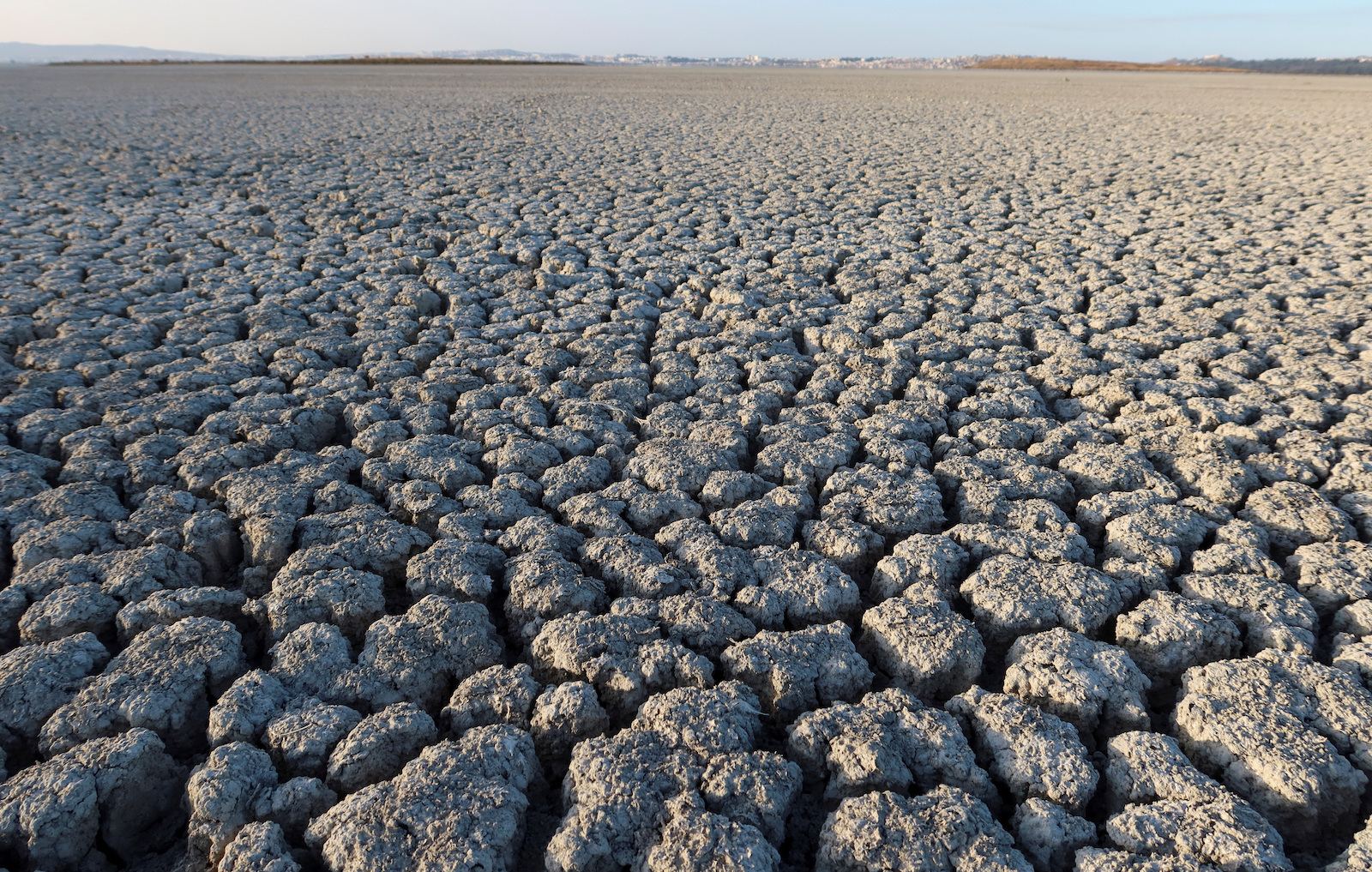
CLIMATE ADAPTATION-
Tunisia called for a joint program to combat the effects of climate change on development during a meeting with a World Bank delegation, Tunis Afrique Presse (TAP) reports. The World Bank's Fall 2023 Economic Monitor of Tunisia showed slowed economic recovery in Tunisia in the first half of 2023 due to the ongoing drought and external financing challenges. “Strengthening competition, increasing fiscal space, and adapting to climate change are crucial actions to restore economic growth and build resilience to future economic and climatic shocks,” said the World Bank's country manager for Tunisia Alexandre Arrobbio.
ALSO- Tunisia has begun implementing the Protocol on Integrated Coastal Zone Management in the Mediterranean (ICZM Protocol) to protect coastal zones and prevent natural disasters from having major consequences, TAP reports. All of the country's 13 coastal zones are at risk of marine erosion, said Agence de Protection et d'Aménagement du Littoral CEO Mehdi Belhaj. The protocol aims to ensure the sustainable development and use of coastal zones and natural resources and the preservation of coastal ecosystems.
CARBON CAPTURE-
Oman is exploring more CCS projects with a consortium of local + international oil + gas companies: Oman’s Ministry of Energy and Minerals signed an MoU with a consortium — made up of state-owned Petroleum Development Oman (PDO), Shell Oman, OQ Gas Networks, and Occidental Petroleum (Oxy) — to conduct a joint study exploring potential projects in carbon capture and storage (CCS) in the sultanate, Oman News Agency reported. The study will look into how the carbon captured can be integrated with enhanced oil recovery (EOR) projects in Oxy Oman’s oil production facilities.
We knew this was coming: PDO expressed in May that it is embarking on a plan to utilize CCS for EOR practices, after it had already signed an agreement with Shell Oman to assess opportunities in the sultanate.
What’s EOR and what does carbon capture have to do with it? EOR is the practice of extracting oil from a well that has already gone through the primary and secondary stages of oil recovery. Injecting carbon into the oil extraction sites is one way that oil companies utilize captured carbon to further increase its oil production. In fact, 88% of global CO2 captured is used for EOR despite climate groups criticizing it given its role in increasing fossil fuel production.
OTHER STORIES WORTH KNOWING ABOUT THIS MORNING-
- The International Committee of the Red Cross (ICRC) and the Sharjah Research Technology & Innovation Park (SRTIP) have partnered to establish the first energy and water knowledge hub in the region. The hub aims to find solutions for humanitarian challenges in the fields of energy and water. (Wam)
- Egypt + China sign agreement to increase cooperation in green and smart ports: Egypt’s Alexandria Port Authority signed an MoU with China’s Guangzhou Port Authority to increase cooperation and knowledge exchange in green and smart port concepts. (Statement)
- Adnec updates net zero strategy: Abu Dhabi National Exhibitions Company (Adnec) is stepping up its efforts in carbon emission reduction by setting its target date for becoming carbon neutral at 2045, which is sooner than the UAE's 2050 goal. (Wam)
AROUND THE WORLD
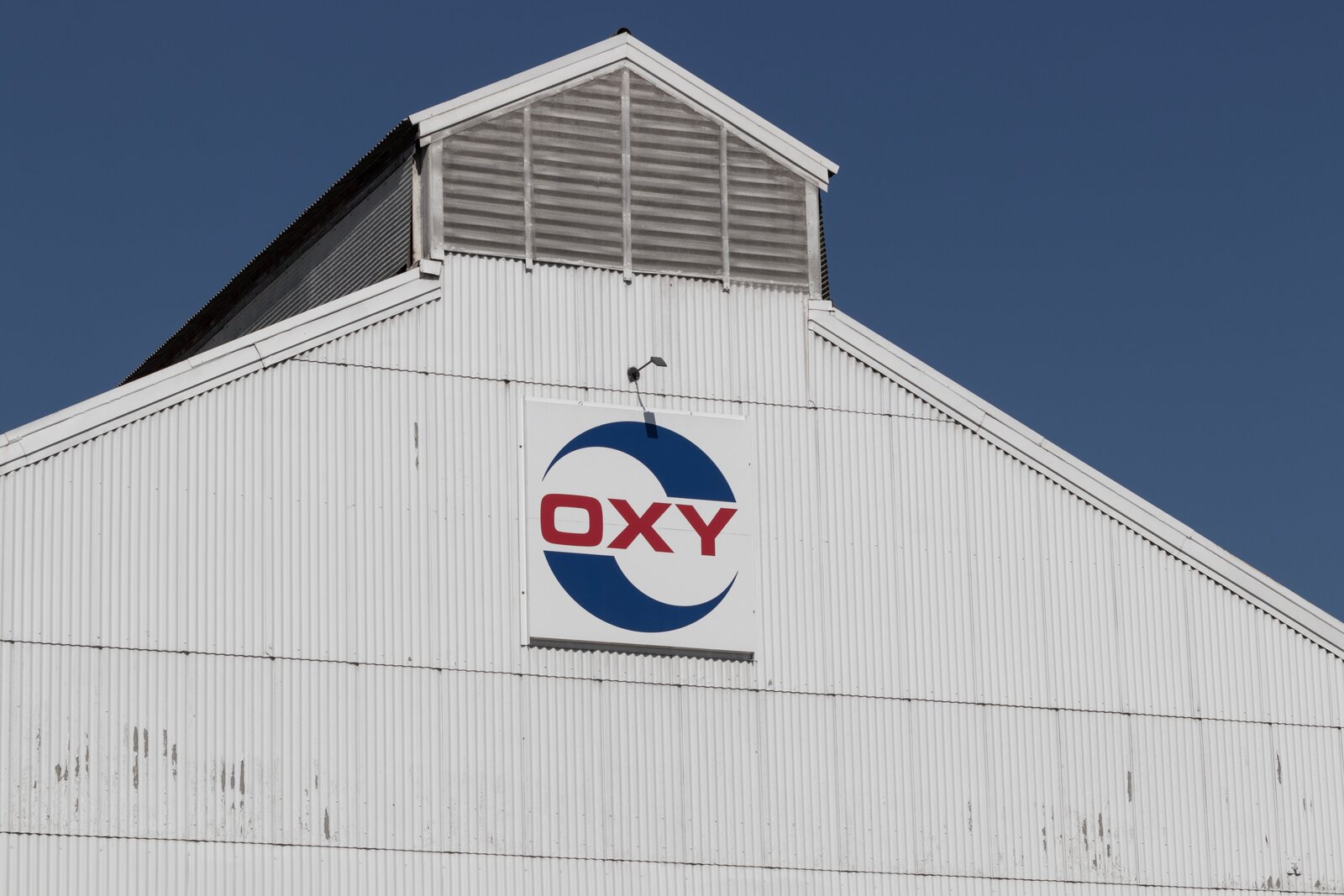
BlackRock invests in Occidental's Stratos: New York-based investment company BlackRock is investing USD 550 mn in developing Occidental's direct air capture (DAC) Stratos plant, according to a statement. "This joint venture demonstrates that Direct Air Capture is becoming an investable technology and BlackRock’s commitment in STRATOS underscores its importance and potential for the world," said Occidental's CEO Vicki Hollub.
Stratos is on a roll: Occidental announced it was selling 27.5k tons of DAC CO2 removal credits from Stratos to TD Bank earlier this week. Amazon also said it was purchasing 250k tons of carbon credits from Occidental’s DAC plant over the next decade last September.
OTHER STORIES WORTH KNOWING ABOUT THIS MORNING-
- Shell to boost US SAF production: Energy giant Shell is planning to scale up production of sustainable aviation fuel (SAF) in the US, whose federal and state legislators are offering an array of tax credits to encourage SAF production. Shell intends to channel its low-carbon spending to projects like EVs and biofuels to cut emissions. (Reuters)
- Indonesia bags USD 1 bn from green sukuk issuance: Indonesia raised USD 1 bn from a 10-year green sukuk issuance offered at a 5.6% yield. The proceeds will be used to finance or refinance green and blue energy projects. (Reuters)
CALENDAR
OCTOBER 2023
29 October-2 November (Sunday-Thursday): Cairo Water Week, Cairo, Egypt.
30 October-2 November (Monday-Thursday): International Solar Alliance Assembly, New Delhi, India.
31 October-2 November (Tuesday-Thursday): Financial Times’ Energy Transition Summit, London, UK.
31 October-2 November (Tuesday-Thursday): World Hydropower Congress, Bali, Indonesia.
NOVEMBER 2023
1-3 November (Wednesday-Friday): Forbes Middle East Sustainability Leaders Summit 2023, Abu Dhabi, UAE.
7-8 November (Tuesday-Wednesday): ADIA Lab Symposium on Climate Change and Health Sciences, Abu Dhabi, UAE.
9-10 November (Thursday-Friday): International Renewable Energy Agency Investment Forum, Uruguay.
9-15 November (Thursday-Wednesday): Intra-African Trade Fair 2023, Cairo, Egypt.
11-13 November (Saturday-Monday): GCC-Türkiye Economic Forum, Istanbul, Turkey.
15-17 November (Wednesday-Friday): WETEX and Dubai Solar Show, Dubai, UAE.
15-18 November (Wednesday-Saturday): DEWA’s First MENA Solar Conference, Dubai, UAE.
20-24 November (Monday-Friday) Aviation and Alternative Fuels conference, Dubai, UAE.
27-30 November (Monday-Thursday) Abu Dhabi Finance Week (ADFW), Abu Dhabi, UAE.
28-29 November (Tuesday-Wednesday): World Green Economy Summit (WGES), Dubai, UAE.
30 November – 12 December (Thursday-Tuesday): Conference of the Parties (COP 28), Dubai, UAE.
DECEMBER 2023
4 December (Monday): Saudi Green Initiative Forum, Dubai, UAE.
4 December (Monday): Abu Dhabi Sustainability Week (ADSW) summit, Dubai, UAE.
4-7 December (Monday-Thursday): International Conference on Global Warming, Ras Al Khaimah, UAE.
6-7 December (Wednesday-Thursday): Reuters’ Energy Transition MENA conference, Dubai, UAE.
7-8 December (Thursday-Friday): Future Investment Initiative (FII) Priority, Hong Kong.
8 December (Friday): Youth for Sustainability Forum (Y4S), Dubai, UAE.
12-14 December (Tuesday-Thursday): Green Hydrogen Summit Oman, Oman Convention and Exhibition Center, Muscat, Oman.
18-20 December (Monday-Wednesday): Saudi Arabia Smart Grid Conference, Hilton Riyadh Hotel & Residences, Riyadh, Saudi Arabia.
JANUARY 2024
9-11 January (Tuesday-Thursday): Future Minerals Forum, Riyadh, Saudi Arabia.
FEBRUARY 2024
26-28 February (Monday-Wednesday): Management and Sustainability of Water Resources, Dubai, UAE.
MARCH 2024
4-6 March (Monday-Wednesday): International Conference on Sand and Dust Storms in the Arabian Peninsula, Riyadh, Saudi Arabia.
APRIL 2024
16-18 April (Tuesday-Thursday): World Future Energy Summit, Abu Dhabi, UAE.
23-25 April (Tuesday-Thursday): Connecting Green Hydrogen MENA, Dubai, UAE.
MAY 2024
19-21 May (Sunday-Tuesday): Saudi Energy Convention, Riyadh, KSA.
JUNE 2024
5 June (Wednesday): World Environment Day, Saudi Arabia.
OCTOBER 2024
10-12 October (Tuesday-Thursday): Autonomous E-Mobility Forum, Doha, Qatar.
DECEMBER 2024
2-13 December (Monday-Friday): Conference of the Parties (COP16) to the United Nation Convention to Combat Desertification, Riyadh, KSA.
EVENTS WITH NO SET DATE
2024
Early 2024: The 2023 US Algeria Energy Forum, Washington DC, USA.
12-14 February (Monday-Wednesday): Sustainable Aviation Futures MENA Congress, Dubai, UAE.
End-2024: Emirati Masdar’s 500 MW wind farm in Uzbekistan to begin commercial operations.
QatarEnergy’s industrial cities solar power project will start electricity production.
2025
International Union for Conservation of Nature World Conservation Congress, Abu Dhabi, UAE.
UAE to have over 1k EV charging stations installed.
2026
UITP Global Public Transport Summit, Dubai, UAE.
Annual Meetings of the World Bank and the International Monetary Fund, Bangkok, Thailand.
1Q 2026: QatarEnergy’s USD 1 bn blue ammonia plant to be completed.
End-2026: HSBC Bahrain to eliminate single-use PVC plastic cards.
2027
MENA’s district cooling market is expected to reach USD 15 bn.
2030
UAE’s Abu Dhabi Commercial Bank (ADCB) wants to provide AED 35 bn in green financing.
UAE targets 14 GW in clean energy capacity.
Tunisia targets 30% of renewables in its energy mix.
Qatar wants to generate USD 17 bn from its circular economy, creating 9k-19k jobs.
Morocco’s Xlinks solar and wind energy project to generate 10.5 GW of energy.
2035
Qatar to capture up to 11 mn tons of CO2 annually.
2045
Qatar’s Public Works Authority’s (Ashghal) USD 1.5 bn sewage treatment facility to reach 600k cm/d capacity.
2050
Tunisia’s carbon neutrality target.
2060
Nigeria aims to achieve its net-zero emissions target.
Enterprise Climate is available without charge thanks to the generous support of HSBC (tax ID: 204-901-715), the leading corporate and retail lender in Egypt; and Infinity Power (tax ID: 305-170-682), the leading generator and distributor of renewable energy in Africa and the Middle East. Enterprise Climate is delivered Mon-Thurs before 4 am UAE time. Were you forwarded this copy? Sign up for your own delivery at climate.enterprise.press. Contact us on climate@enterprisemea.com.


